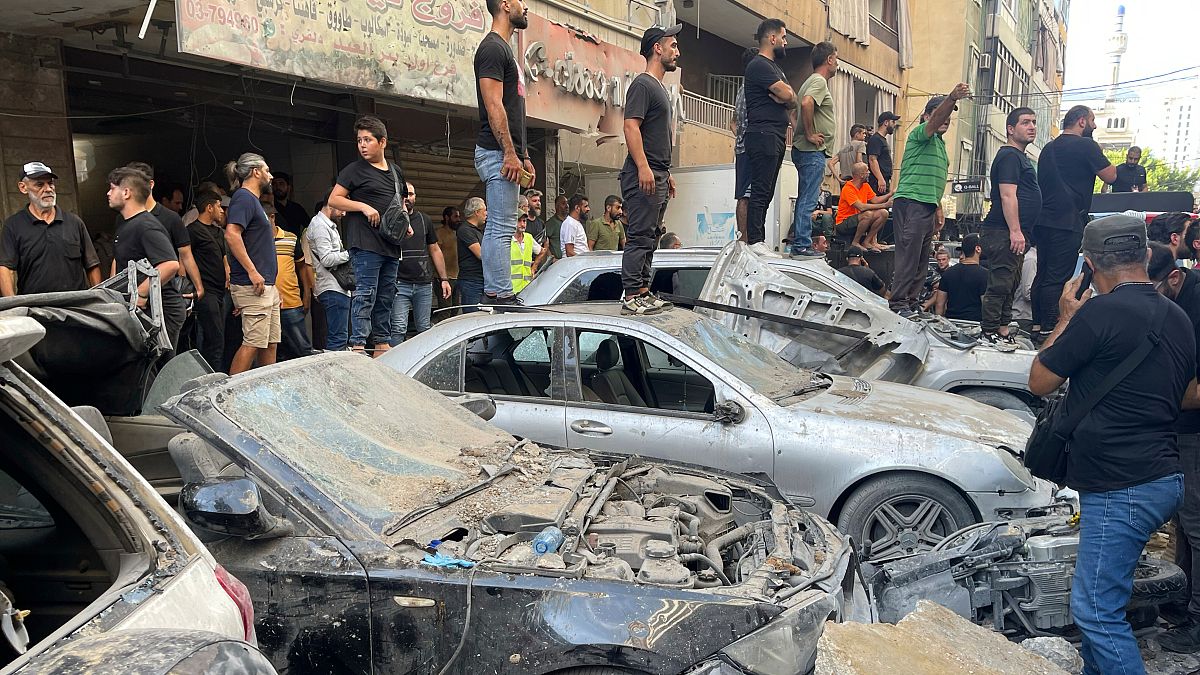Israel carried out a deadly airstrike targeting a Hezbollah commander in a densely populated neighborhood of southern Beirut, Lebanon. The attack resulted in the death of at least 14 people, including the commander, Ibrahim Akil, and 10 other Hezbollah operatives. The strike was described as the deadliest such attack on the Lebanese capital in years. Lebanese health officials reported that at least 66 people were wounded in the attack, with nine in serious condition. The strike hit during rush hour, causing chaos as people were leaving work and children were heading home from school.
The Israeli military’s chief spokesman, Rear Adm. Daniel Hagari, stated that the strike was in response to Hezbollah’s regular rocket fire into Israel. He described Akil as one of the militants responsible for these attacks. Akil has previously been involved in terrorist attacks dating back to 1983, where more than 300 people were killed in bombings at the U.S. Embassy in Beirut and the U.S. Marine Corps barracks. Akil was supposed to be in the building that was targeted in the strike, according to a Hezbollah official. The strike occurred in the Jamous area, close to downtown Beirut, where Hezbollah conducts many political and security operations.
The escalation of violence between Israel and Hezbollah has been ongoing since Hamas attacked Israel in October, triggering a military offensive in Gaza. The recent airstrikes and rocket attacks have heightened fears of a wider regional conflict. Israel and Hezbollah have engaged in regular cross-border attacks, with the most recent one targeting Beirut, marking the deadliest such incident since the 2006 war between the two sides. Israel has accused Hezbollah of plotting attacks against Israeli soldiers and civilians, with Hagari stating that the two militants killed were close associates of Hezbollah leader Hassan Nasrallah.
Following the Israeli airstrike on Beirut, Hezbollah retaliated with attacks on northern Israel, targeting military sites and intelligence bases. The exchanges of fire have led to heightened tensions in the region, with Israel ordering residents in certain areas to avoid public gatherings and stay close to shelters. The recent escalation in violence has raised concerns of an all-out war, especially after the sabotage of Hezbollah’s communication devices, which resulted in multiple casualties. Israel has neither confirmed nor denied involvement in these attacks, further fueling the volatile situation.
The ongoing conflict between Israel and Hezbollah has resulted in casualties and damage on both sides, with the latest round of attacks causing widespread destruction and loss of life. The airstrikes and rocket barrages have intensified in recent days, posing a serious threat to the stability of the region. The situation remains tense, with both sides vowing to continue their attacks in response to perceived provocations. The international community is closely monitoring the developments in the region, hoping to prevent further escalation and find a peaceful resolution to the conflict. As tensions continue to rise, the risk of a full-scale war looms large, further complicating efforts to de-escalate the situation.










